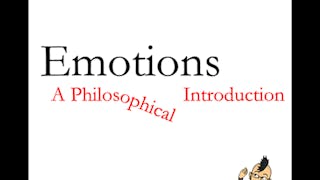This lecture series aims to explore our emotional landscape through the lens of the renowned Korean Confucian scholar, Seongho Yi Ik(星湖 李瀷, 1683- 1761) who lived through Joseon Dynasty, Korea. The Confucian project can be summarized as “Learning to be Human,” which involves not just biological development but also cultural and moral cultivation. Seongho emphasized the importance of emotional education as a crucial aspect of the Confucian cultivation program. Emotions play a significant role in understanding others and being understood, making them essential for navigating complex relationships and engaging with the world meaningfully. This series will delve into Seongho’s short yet profoundly insightful work on emotions, the New Compilation of the Four-Seven Debate (Sachil sinpyeon). His approach challenges us to think critically about our own emotional lives, how our emotions guide our moral choices, shape our relationships, and ultimately define who we become. By engaging with these lectures with curiosity and reflection, Seongho’s insights will not only enrich your understanding of Confucian moral psychology but also offer practical wisdom for leading a better life.

Découvrez de nouvelles compétences avec 30 % de réduction sur les cours dispensés par des experts du secteur. Économisez maintenant.


Ce que vous apprendrez
Understand the importance of emotional education in the Confucian cultivation program through the philosophy of Seongho Yi Ik.
Understand the impact of emotions on moral actions and human relationships.
Explore the complexities of human emotions through Seongho’s work, the New Compilation of the Four-Seven Debate (Sachil sinpyeon).
Apply Seongho’s philosophical approach to daily life to gain practical wisdom for leading a better life.
Compétences que vous acquerrez
- Catégorie : Self-Awareness
- Catégorie : Ethical Standards And Conduct
- Catégorie : Critical Thinking
- Catégorie : Emotional Intelligence
- Catégorie : Empathy
- Catégorie : Compassion
- Catégorie : Psychology
- Catégorie : Cultural Sensitivity
Détails à connaître

Ajouter à votre profil LinkedIn
juillet 2025
9 devoirs
Découvrez comment les employés des entreprises prestigieuses maîtrisent des compétences recherchées

Il y a 8 modules dans ce cours
This week, we’re going to learn about Seongho Yi Ik’s early life and how his childhood experiences shaped his later thinking. We’ll also look at his contributions to Neo-Confucianism and Practical Learning, as well as the historical background of the Four-Seven Debate.
Inclus
7 vidéos2 lectures1 devoir1 sujet de discussion
This week, we’re going to look at Zhu Xi’s theories of moral psychology, especially how he understood human nature, emotions, and the heartmind. We’ll also be exploring how these ideas help explain moral motivation and the cultivation of ethical behavior.
Inclus
6 vidéos1 lecture1 devoir1 sujet de discussion
This week, we’re going to look at how Seongho Yi Ik reinterpreted Zhu Xi's theory of emotions by grounding it in everyday life and personal practice. We’ll also explore his unique view of emotions, especially how everyday emotions can grow into moral emotions through reflection and social resonance.
Inclus
6 vidéos1 lecture1 devoir1 sujet de discussion
This week, we’re going to look at Seongho Yi Ik’s perspectives on human emotions and how they relate to Confucian self-cultivation. We’ll also examine how the Four Beginnings and the Seven Emotions work together in his framework to guide moral life.
Inclus
6 vidéos1 lecture1 devoir1 sujet de discussion
This week, we’re going to look at Seongho Yi Ik’s perspectives on compassion and commiseration and how they shape Confucian moral cultivation. We’ll also explore his “Dongche” model and how it connects emotions like compassion and grief to moral action and community.
Inclus
6 vidéos1 lecture1 devoir1 sujet de discussion
This week, we’re going to look at Seongho Yi Ik’s perspectives on shame and disdain, and how they function in Confucian moral cultivation. We’ll also explore his “Mua” model and how these emotions help maintain moral integrity and a sense of righteousness.
Inclus
6 vidéos1 lecture1 devoir1 sujet de discussion
This week, we’re going to explore Seongho Yi Ik’s views on the Fourth Beginnings, especially shi-fei (affirming/denying), and their place in Confucian emotion theory. We’ll also consider Seongho’s interpretation of affirming/denying and its role in moral psychology. Lastly, we’ll think about how wisdom works in his framework as a meta-cognitive process that completes and stores moral experiences.
Inclus
6 vidéos1 lecture1 devoir1 sujet de discussion
This week, we’re going to examine Seongho Yi Ik’s perspectives on the Four Beginnings and how they contribute to Confucian moral cultivation. We’ll explore the differences between the Four Beginnings and the Seven Emotions, especially in terms of their public (gong) and private (sa) characteristics. We’ll also look at Seongho’s argument that the Four Beginnings guide and control the Seven Emotions to prevent harmful or immoral behavior.
Inclus
7 vidéos1 lecture2 devoirs1 sujet de discussion
Obtenez un certificat professionnel
Ajoutez ce titre à votre profil LinkedIn, à votre curriculum vitae ou à votre CV. Partagez-le sur les médias sociaux et dans votre évaluation des performances.
Instructeurs



Offert par
En savoir plus sur Philosophy
 Statut : Prévisualisation
Statut : PrévisualisationUniversitat Autònoma de Barcelona
 Statut : Essai gratuit
Statut : Essai gratuitSungkyunkwan University
 Statut : Prévisualisation
Statut : PrévisualisationUniversity of Michigan
 Statut : Essai gratuit
Statut : Essai gratuitCase Western Reserve University
Pour quelles raisons les étudiants sur Coursera nous choisissent-ils pour leur carrière ?





Ouvrez de nouvelles portes avec Coursera Plus
Accès illimité à 10,000+ cours de niveau international, projets pratiques et programmes de certification prêts à l'emploi - tous inclus dans votre abonnement.
Faites progresser votre carrière avec un diplôme en ligne
Obtenez un diplôme auprès d’universités de renommée mondiale - 100 % en ligne
Rejoignez plus de 3 400 entreprises mondiales qui ont choisi Coursera pour les affaires
Améliorez les compétences de vos employés pour exceller dans l’économie numérique
Foire Aux Questions
To access the course materials, assignments and to earn a Certificate, you will need to purchase the Certificate experience when you enroll in a course. You can try a Free Trial instead, or apply for Financial Aid. The course may offer 'Full Course, No Certificate' instead. This option lets you see all course materials, submit required assessments, and get a final grade. This also means that you will not be able to purchase a Certificate experience.
When you purchase a Certificate you get access to all course materials, including graded assignments. Upon completing the course, your electronic Certificate will be added to your Accomplishments page - from there, you can print your Certificate or add it to your LinkedIn profile.
You will be eligible for a full refund until two weeks after your payment date, or (for courses that have just launched) until two weeks after the first session of the course begins, whichever is later. You cannot receive a refund once you’ve earned a Course Certificate, even if you complete the course within the two-week refund period. See our full refund policy.
Plus de questions
Aide financière disponible,





